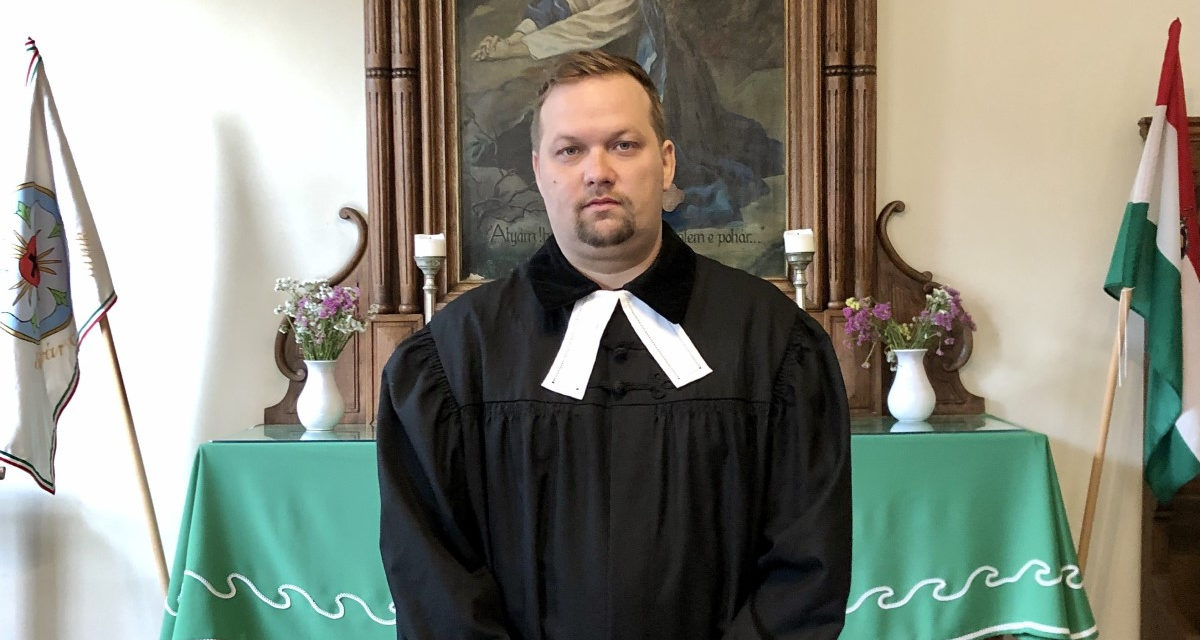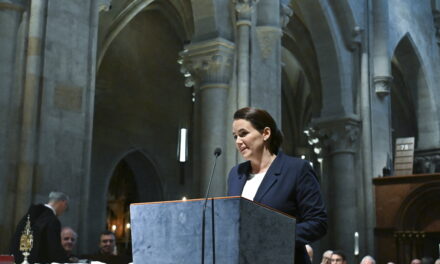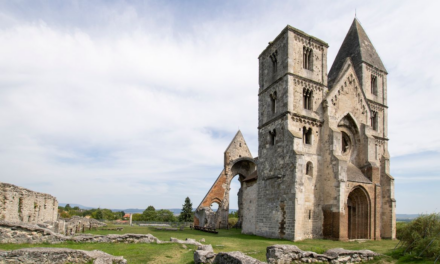The November resolution formulated by evangelical pastors and believers caused a great response, in which they voiced their concern about the LGBTQ ideology infiltrating the church and the neglect of sins. The resolution has now become ecumenical, it was signed by nearly three thousand members of almost ten denominations. The Mandiner spoke with Máté Kiss, the signatory of the evangelical LGBTQ resolution.
"We live in stressful times. Thoughts and ideologies that were previously only heard sporadically or behind closed doors have become commonplace in the world. On the one hand, the promotion of gender, LGBTQ+, male and female sex-changing surgeries and treatments, on the other hand, the devaluing of values about marriage and family, the extremely high number of abortions or the practice of euthanasia are the signposts of this process," read the Lutheran pastors and congregation in the November Resolution formulated by members . The voice of those who are concerned about their church and the purity of teaching is getting stronger, and they trust that the Scandinavian model can be avoided, or even the German example, where they have now abandoned the biblical position on this issue.
"An internal prayerful and thinking process about this started already last year, even though we were late even then, but now we definitely had to speak," Lutheran pastor Máté Kiss tells Mandiner. "One of the members of the initiative points out that it was not the child protection law that brought the November Resolution to life, although it is a fact that it drew attention to their statement, but the resolution was formulated and born in us earlier regardless of that."
Their primary goal was to define for their own church the vision of the word that Christianity has represented for two thousand years. They felt the need for this because warning signs are becoming more frequent in the western and northern evangelical churches, during which, on this issue, they already differ from the teaching of the Word.
Their primary goal was to define for their own church the vision of the word that Christianity has represented for two thousand years. They felt the need for this because warning signs are becoming more frequent in the western and northern evangelical churches, during which, on this issue, they are already deviating from the teaching of the Word, said the pastor.
In the United States of America, for example, the first transgender evangelical bishop was elected, the Scandinavian churches already bless homosexual relationships as marriage, and the German examples are also becoming more and more blatant, lists Máté Kiss.
But the case of Päivi Räsänen is also memorable; the former Finnish Minister of the Interior, currently a Member of Parliament, is on trial because he quoted on his Twitter page from one of Saint Paul's letters when commenting on the discourse on marriage within his church.
So far, more than 2,600 Christians from nearly ten denominations have joined the declaration, so the initiative has become ecumenical by Christmas. According to Máté Kiss, the statement signed by fifteen communities has a lot of power, precisely because for various reasons throughout history, we Christians have split into denominations, but now we have expressed a common opinion on an important issue, and even the Jewish and Muslim communities have also joined it.
The main aspect of the November resolution is therefore the confirmation of the biblical teaching that marriage is concluded between a man and a woman. "We do not represent our own opinion in this resolution, but the teaching of the Bible, the Christian teaching," emphasizes the pastor.
This has a serious significance and power in Hungary today, and it is not by chance that it is vigorously attacked.
Source, image and full article: Mandiner












